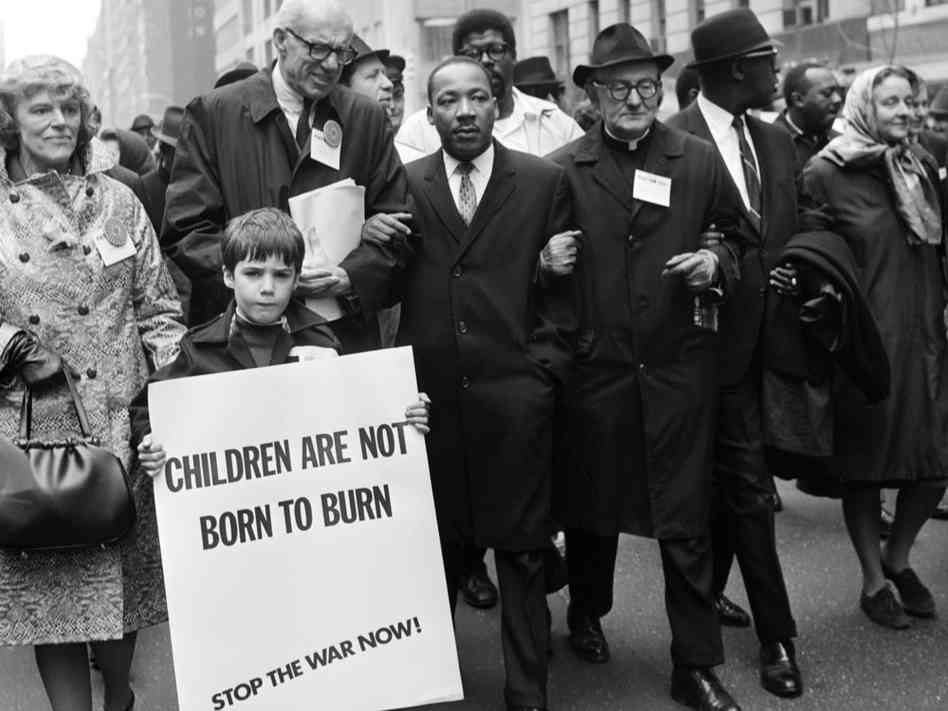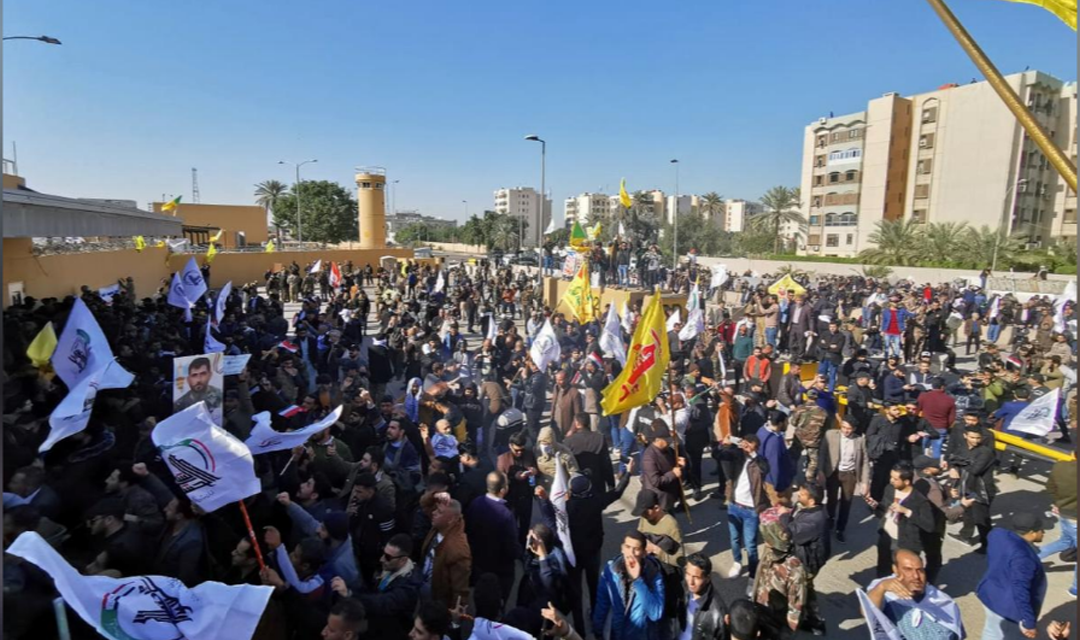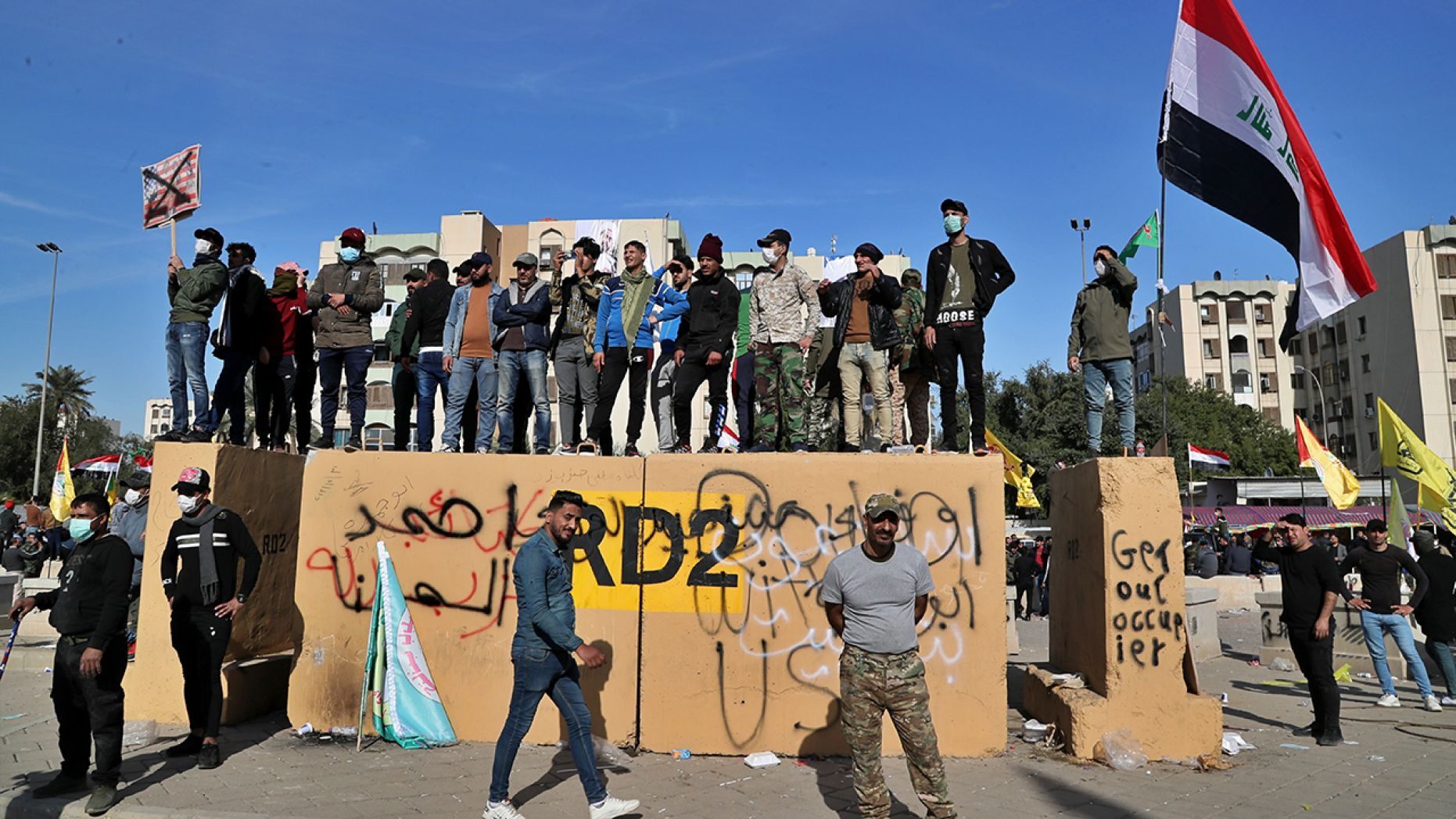Workers Voice Radio, November 9, 2019
Gregory William: Today is the 30th anniversary of the fall of the Berlin Wall, which is being celebrated in the capitalist media. Just today there was an unveiling of a statue of war-monger, of arch-enemy of the working class, Ronald Reagan, in the city of Berlin, and the guest of honor for this unveiling is Mike Pompeo of the Trump administration.
All we ever hear about the fall of the Berlin Wall, or the end of the Soviet Union, is that this was a triumph of freedom and democracy. But we have to ask ourselves, is that true? Was that really the effect of it?
We’re going to talk to John Catalinotto. He’s a long-time organizer, notably playing a key role in the American Servicemen’s Union during the U.S. war against Vietnam. They were organizing rank and file troops, as workers, to resist the imperialist war. He’s the author of the book, Turn the Guns Around: Mutinies, Soldier Revolts and Revolutions, which came out in 2017. He spent time in East Germany, also known as the German Democratic Republic (GDR), or socialist Germany.
John, can you say a little bit about when you first went to the GDR? What was your impression of this society? Was it absolutely horrible like they say in the capitalist press?
John Catalinotto: No. It’s wasn’t. The first time I visited the GDR was in 1973, more as a tourist than anything else. I speak German, so I talked to people. Right at the border, you had to go through a process that wasn’t pleasant, because it’s like all these official people. But once you get a quarter mile away, it was like any other city, and people were living like they live anywhere else.
Only in this case, they had a lot of social benefits that were more extensive than what Western Germany had, which had more benefits than the U.S. had at that time. They had pretty much written into the laws a lot of social benefits. There was a great deal of equality. There was absolutely no unemployment. So basic security and being able to stay alive without too much trouble was easy for the people of the German Democratic Republic, and there was no problem for a visitor.
In fact, I ran out of money because that was the particular week that Nixon had made some changes in how they support the dollar, and the dollar dropped enormously against the Western European currencies, so I ran out of money. But on a little bit of money, I could buy milk and bread and stuff like that, and survive for the last couple of days that I was there.
I would say that what you hear about it is not the truth. What we’re hearing today is the version of history as told by the winners of this battle in a long class war.
Gregory William: What kind of benefits did people actually enjoy? What was the status of women’s rights or for workers?
John Catalinotto: You have to live in a place to know how it actually works out in reality. But there are certain things that were definitely true. For example, any woman who wanted to work, worked, and not only was able to work and get a job, but had support if she happened to be a mother, especially if she was a single mother. There was care available both for infants and for kindergarten. So you had infant care and care for 3-6. It was very inexpensive, or free, and it was available to anyone who wanted it. In Western Germany at the time, only about 50% of women were in the workforce, whereas about half of the workforce in the GDR were women. [In capitalist West Germany, a married woman needed her husband’s permission to work outside the home as late as 1977.]
That’s one one way of measuring it, but there’s a lot more. They had rights to healthcare, abortion, education (all the way up to university, which was free).
They had rights to housing. Of course, they did not have adequate housing in the beginning years after World War II and even into the 1970s. Housing was short. [In the 1970s, the government initiated a massive wave of public housing construction aimed at ending the housing shortage.] But especially for people who had special problems, like single mothers, they would be put higher up on the list for receiving housing.
Gregory William: Listeners have to understand that this was a society that had been destroyed during the Second World War. This was a country where Nazism was born, where Hitler was in power. That’s how bad it was in Germany. There was a long revolutionary workers’ tradition in the country. Unfortunately, Hitler was able to rise to power and went about destroying everything that had been gained.
But once Nazism was defeated by the Soviet Red Army, the East German people (with Soviet aid) built the society back up from the ashes. And just to think of the fact that Hitler had been trying to conquer the world and oppress, and even eradicate, people for being Jewish and other nationalities. But then the German Democratic Republic, the socialist German society, was then supporting liberation struggles in Africa, at a time when the U.S. and West German governments were supporting the racist Apartheid regime in South Africa. I mean, how amazing is that?
Gavrielle Gemma: We should also recall how the GDR government dealt with the Nazis as compared to how the capitalist government of West Germany put the Nazis into the government.
John Catalinotto: In West Germany some high profile Nazis were charged with war crimes in Nuremberg after the war. But they more or less let the Nazis stay in the positions that they had, even if it was in teaching, the police, or the courts, etc. They kept a lot of it intact even though they dismantled the Nazi party.
But in Eastern Germany they had to purge the education system, and the police, and the entire system outside of that. And, of course, if they caught war criminals, they put them on trial. So they had to build up a new cadre of people to run the government that were not associated with the Nazis in any way. That was hard to do, of course.
Also, Western Germany received a lot of assistance, or investment, from the United States, which came out of the war extremely wealthy. The U.S. [government and ruling class] were able to purposefully assist the development of the capitalist economy in Western Germany. They knew that this was the front line of a global war that they were carrying out against the socialist countries, and they made life very difficult for the people in the GDR.
You brought up the GDR’s assistance to the anti-colonial liberation struggles. Now, it’s significant that [in the commemorations of the wall coming down] they put up a statue of Ronald Reagan, not Nelson Mandela. If they wanted to raise a statue of freedom, it should be Nelson Mandela or one of the other African leaders. But no, they didn’t do that. The choice here is telling.
During the history of the German Democratic Republic, especially in the 60s and 70s, they gave enormous amounts of assistance to those who were carrying out the liberation struggles in southern Africa. For example, if a liberation fighter was wounded in South Africa, or Namibia, or Angola, or Mozambique, in battles with the colonial power, they would often be slipped out of the country and treated in East German hospitals at no cost. This is the kind of stuff that was going on all along.
I was there in 1989, just a few weeks before the wall came down, and I interviewed some Angolans who were getting technical training at Humboldt University in East Berlin. This is the kind of thing that the German Democratic Republic was doing throughout that entire period – assisting the liberation struggles in the way that they could do best, which was most often giving technical help. It wasn’t as industrially advanced, and didn’t have as much capital, as western Germany, but it was still very technologically and educationally advanced.
Gregory William: Thank you, John, we’re going to have to wrap it up. I just want to make one final statement. With all the gains that the workers made in East Germany – once that system was brought down because of counter-revolution – the gains of the working class there were decimated. Industry was dismantled, mostly, in the eastern part of Germany. And with the east absorbed into the new unified Federal Republic, Germany returned to its imperialist ways. They have played a part in the NATO wars, and the U.S. invasions of Iraq and Afghanistan. And within the European Union, Germany acts to impose anti-worker austerity policies on weaker European countries, like Greece. So it is playing precisely the opposite role that the East German republic played (which was a progressive, peace-loving role). So the dismantling of the GDR was a real loss for the global working class, and for humanity as a whole.
John Catalinotto: I hope we can do as much as we can to correct the false impressions of history that are being imposed upon the working class here in the United States. You just have to be skeptical whenever the bosses, the ruling class, lays down what seems to be a united, uniform position on something. You have to be skeptical enough to ask why they are doing it. You have to ask what interests does it serve for them. And, in this case, the point is to vilify the whole idea of socialism. And I think that one reason they’re doing it here is that there’s a lot of dissatisfaction with capitalism, especially among young people. It’s not satisfying the needs of the people, and they’re looking for something else. So those on top are saying, “Look how terrible it was,” and they lie and exaggerate.





